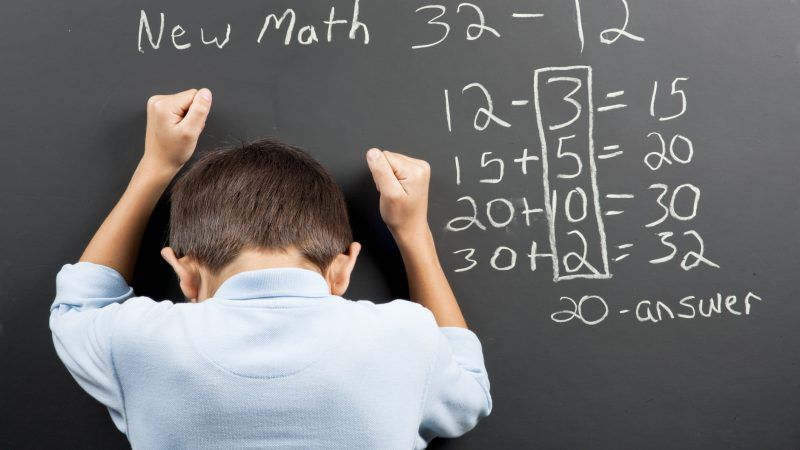Seattle Public Schools Will Start Teaching That Math Is Oppressive
A new ethnic studies curriculum will teach students that "ancient mathematical knowledge has been appropriated by Western culture."

Math is a deeply frustrating subject for many elementary and high school students. But Seattle public schools are gearing up to accuse math of a litany of more serious crimes: imperialism, dehumanization, and oppression of marginalized persons.
The district has proposed a new social justice-infused curriculum that would focus on "power and oppression" and "history of resistance and liberation" within the field of mathematics. The curriculum isn't mandatory, but provides a resource for teachers who want to introduce ethnic studies into the classroom vis a vis math. According to Education Week:
Seattle's four-page framework is still in the proposal stage. If adopted, its ideas will be included in existing math classes as part of the district's broader effort to infuse ethnic studies into all subjects across the K-12 spectrum. Tracy Castro-Gill, Seattle's ethnic studies director, said her team hopes to have frameworks completed in all subjects by June for board approval.
If the frameworks are approved, teachers would be expected to incorporate those ideas and questions into the math they teach beginning next fall, Castro-Gill said. No districtwide—or mandated—math/ethnic studies curriculum is planned, but groups of teachers are working with representatives of local community organizations to write instructional units for teachers to use if they wish, she said.
"Seattle is definitely on the forefront with this," said Robert Q. Berry III, the president of the National Council of Teachers of Mathematics. "What they're doing follows the line of work we hope we can move forward as we think about the history of math and who contributes to that, and also about deepening students' connection with identity and agency."
The proposal has drawn fire from the right. The American Conservative's Rod Dreher referred to it derisively as "woke math," writing:
The young people who are going to learn real math are those whose parents can afford to put them in private schools. The public school kids of all races are going to get dumber and dumber … and this is going to compel the wokesters in charge of Human Resources at institutions along life's way to demand changing standards to fit political goals. Eventually, bridges are going to start falling down. That too will be the fault of Whiteness.
That's a hyperbolic statement. But having read over the proposed framework, I have to say that it does seem fairly terrible. It's chock full of social justice jargon that sounds smart but is actually vapid. What does it mean to decode mathematical "beauty" or "identify how the development of mathematics has been erased from learning in school?" (Has it been erased? That seems like a problem for history class.) The guidance says it will "re-humanize mathematics through experiential learning" and facilitate learning "independently and interdependently." That's a fancy way of saying almost nothing at all.
The guidance also includes some extremely political, simplistic talking points that might be popular among activist academics but are in reality somewhat dubious. This is verbatim from the proposal: Students will be able to "identify the inherent inequities of the standardized testing system used to oppress and marginalize people and communities of color," "explain how math has been used to exploit natural resources," and "explain how math dictates economic oppression." Each of these statements are debatable, but they are not being presented as such. It would be one thing to hold a class discussion about the strengths and weaknesses of standardized testing, but what's happening here is that students are being trained to reject standardized testing due to its "inherent inequity," which is asserted as some kind of proven fact.
If math is too daunting for students, a better option would be for schools to stop making it mandatory. Giving parents—and even students themselves—more choice and control over their own educational experience is always a plus, and few people actually need to understand higher mathematics to function in society. Infusing the existing math curriculum with a bunch of unfounded progressive assumptions about cultural appropriation is a silly approach.


Show Comments (342)